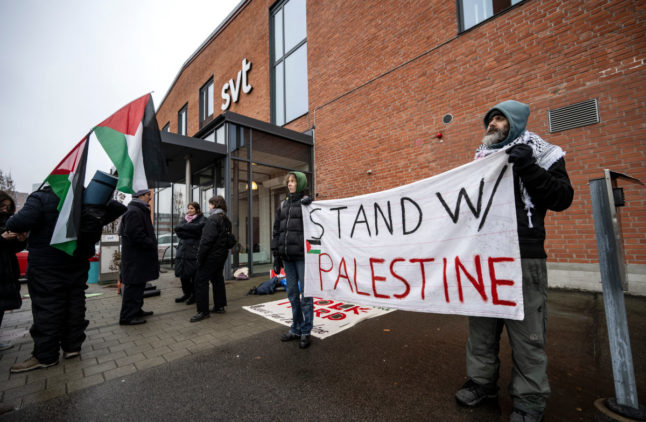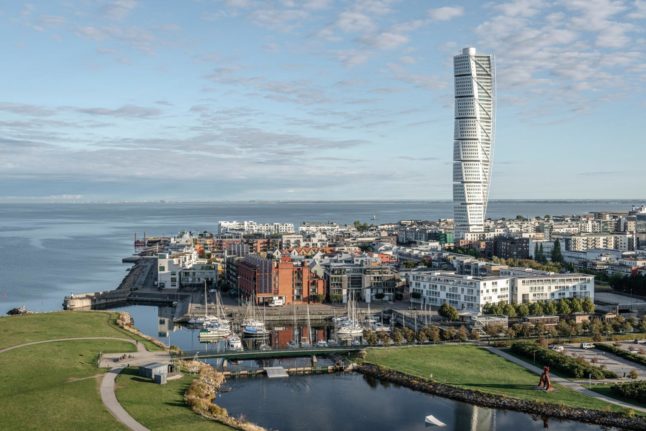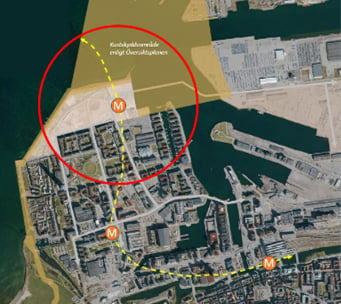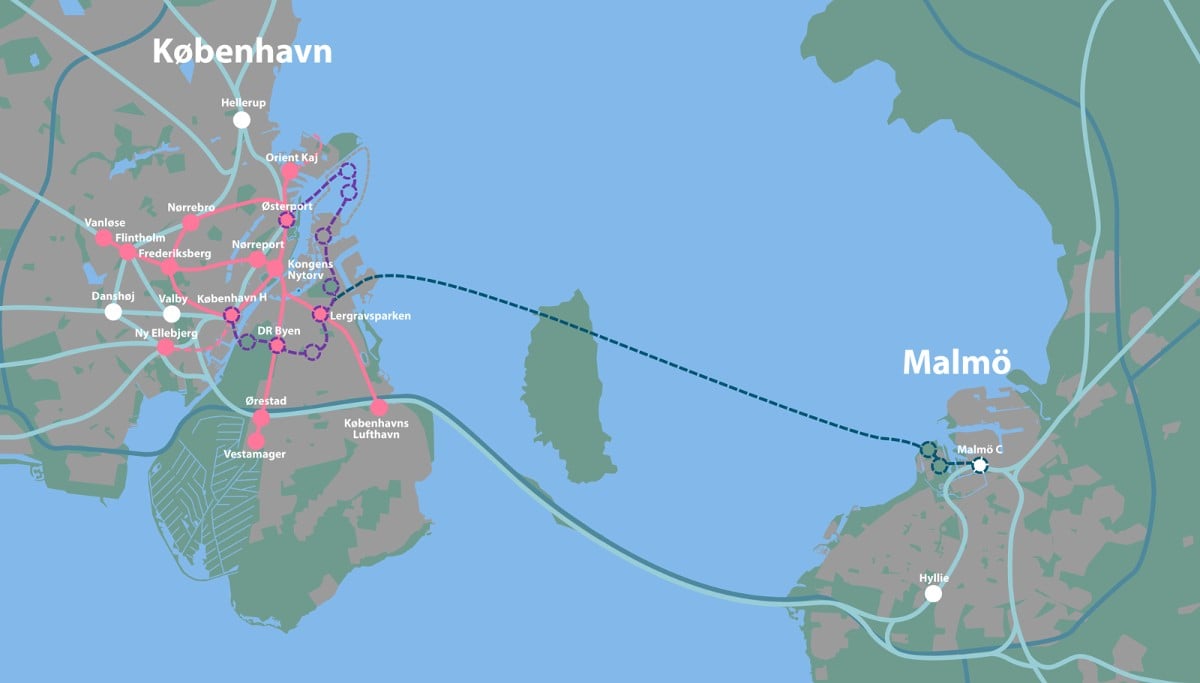The war in Ukraine, and a heightened threat level in Sweden since August after a spate of Quran burnings angered the Muslim world, mean organisers already had their work cut out to ensure that the world’s biggest live music event, which runs from May 5th to 11th, goes off without a hitch.
“We have the conflict between Israel and Hamas, the war in Ukraine which has affected Sweden, a bigger risk of hybrid warfare, there are cyberattacks,” the head of security for the city of Malmö, Ulf Nilsson, enumerated for AFP.
“We’re living in troubled times.”
In the multicultural city of 360,000 people, where residents hail from 186 countries, police said they were up to the task.
“It’s not uncommon for us to see conflicts around the world affect our work and the daily lives of Malmö residents,” police spokesman Niels Norling said.
With a large share of Sweden’s Palestinian community living in Malmö, the conflict between Israel and Hamas has added an extra dimension to the city’s Eurovision preparations.
“A couple of months before the event we had already received requests to hold demonstrations both in support of Israel’s participation in Eurovision and against it,” Norling said.
Swedish public broadcaster SVT, which is organising the event together with the European Broadcasting Union (EBU), said it also has all bases covered.
“We are planning for all sorts of scenarios,” executive producer Ebba Adielsson told AFP.
“We are absolutely prepared for the fact that there will be demonstrations outside the arena so we are planning for that, and also inside the arena of course.”
Malmö is hosting the event after Swedish singer Loreen won the 2023 contest, watched by about 162 million viewers.
Petition and boycott calls
A Swedish petition entitled “No Eurovision in Malmö if Israel Participates” has gathered more than 800 signatures and is to be discussed at a city council meeting in April.
But the move is purely symbolic – the EBU has already ruled Israel can take part, rejecting calls in a number of European countries for it to be excluded over the Gaza war.
The war broke out on October 7th when Hamas attacked Israel, resulting in about 1,160 deaths, mostly civilians, according to an AFP tally of Israeli official figures. The militants also took about 250 hostages.
Israel’s retaliatory campaign has killed at least 32,490 people in Gaza, most of them women and children, according to the health ministry in the Hamas-run territory.
The EBU suspended Russia after its 2022 invasion of Ukraine, effectively banning Russia from the contest.
Israel’s public broadcaster is an EBU member, and Eden Golan, 20, will represent the country after winning a domestic competition.
The EBU did however force Israel to change the lyrics of her song “October Rain”, deeming it too political. It is widely considered to reference the victims of Hamas’s October 7th attack on southern Israel.
Israel became the first non-European country to enter Eurovision in 1973 and has since won the competition four times.
When Malmö last hosted Eurovision, in 2013, residents also protested Israel’s participation.
“This is the first time since the war in Gaza that Israel is participating in an international event,” said Linnaeus University political scientist Anders Persson.
“So it’s also the first time that the BDS (Boycott, Disinvestment, Sanctions) movement has a chance to protest against Israel on a global scale,” he said.
Growing popularity
Karin Karlsson, the Malmö city council official overseeing the event, said she was not overly concerned about the protests.
“This is Sweden and we’re in Malmö. We want to show that you can have different opinions but you express them peacefully.”
Police have vowed to have a large force on hand, but have refused to say whether they will call in extra officers.
Around 100,000 visitors from 80 countries are expected for the event, which has increasing drawing power, Karlsson said.
“Eurovision 2024 is much bigger than in 2013, it’s an event that has grown, both the televised contest as well as the events in the host city,” she said.
Some Eurovision fans are refusing to put on a happy face.
“The Eurovision Song Contest is part of my DNA. I grew up with it,” said Monia Aissaoui, a 41-year-old teacher.
Despite that, she will be boycotting it this year.
“Given their firm position on Russia in the past, they should have adopted the same position for Israel.”
Article by AFP’s Camille Bas-Wohlert





 Please whitelist us to continue reading.
Please whitelist us to continue reading.
Sick and tired of Palestinian protests